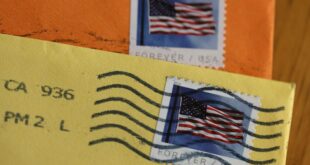Martin Lewis has issued a warning to Britons to “stock up” on a £1.35p item as a looming price increase is on the horizon. The cost of a standard first-class stamp will see a significant 22 percent rise from Monday, October 7, escalating from £1.35 to £1.65.
Mr Lewis, the founder of consumer finance site MoneySavingExpert.com, has long championed this method as an easy way to cut costs, reports The Express.
Advice from the money-saving expert was shared in the MoneySavingExpert newsletter, where he explained: “For years, every time stamps go up in price I’ve suggested people stock up and bulk-buy in advance, as provided the stamp doesn’t have a price on it and instead just says the postage class, it’s still valid after the hike.”
READ MORE Strictly Come Dancing fans complain just minutes into Movie Week show
“So you may as well stock up now, even if it’s just for Christmas cards for the next few Christmases,” he added This latest increase follows previous hikes in October 2023 and April 2024. The price rise for large first-class stamps is even steeper, with a 24 percent increase from £2.10 to £2.60.
The prices of other services, including Signed For, Special Delivery Guaranteed, and Tracked, will also be raised from next week, as announced by Royal Mail. However, second-class stamp prices will remain unchanged – 85p for standard and £1.55 for large letters, according to GB News.
With the introduction of a price hike by Royal Mail, the organisation cites major difficulties in upholding the universal service obligation. This mandates six-day-a-week deliveries to every UK address at a standard price for letters and five days for parcels, as stated on the UK Parliament website.
Royal Mail’s Chief Commercial Officer, Nick Landon, commented, “We always consider price increases very carefully. However, when letter volumes have declined by two-thirds since their peak, the cost of delivering each letter inevitably increases.”
“A complex and extensive network is needed to get every letter and parcel across the country for a single price travelling on trucks, planes, ferries and in some cases drones before it reaches its final destination [delivered] on foot,” he elaborated.
Landon expressed the company’s pride in carrying out the universal service but highlighted the substantial economic burden involved. The public has been urged to exercise vigilance whilst purchasing stamps in bulk to avoid counterfeit goods.
Customers should buy from recognised high street stores or directly through the Royal Mail online shop, keeping their receipts as security measures. The firm has temporarily halted the £5 fine for those receiving mail with fake stamps, detectable via a specific scanner, while those sending mail with counterfeit stamps may still incur penalties.
According to reports, old stamps without barcodes can be swapped for free using the postal service’s Swap Out scheme. All you need to do is fill out a form and send it along with the stamps to Freepost SWAP OUT.


